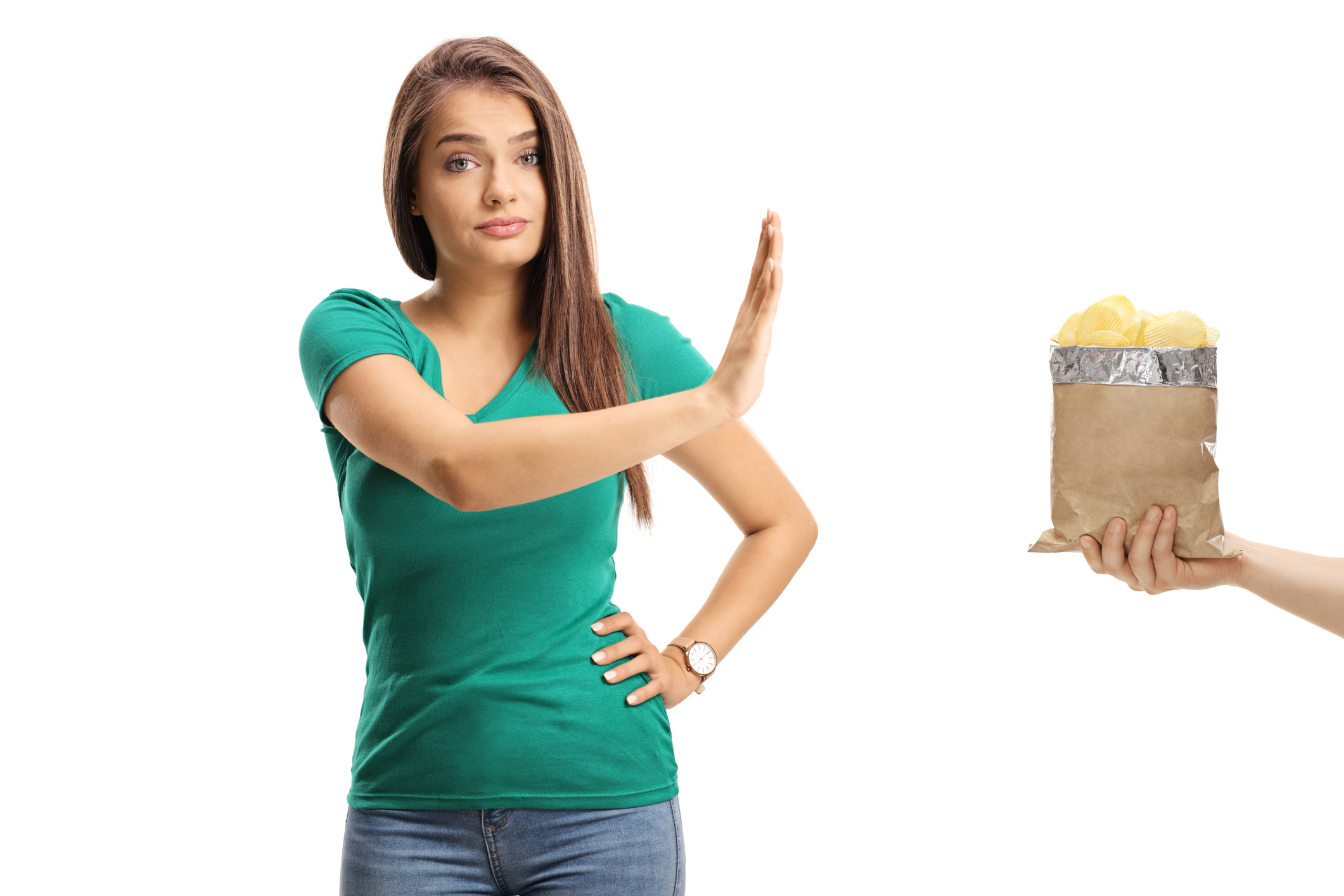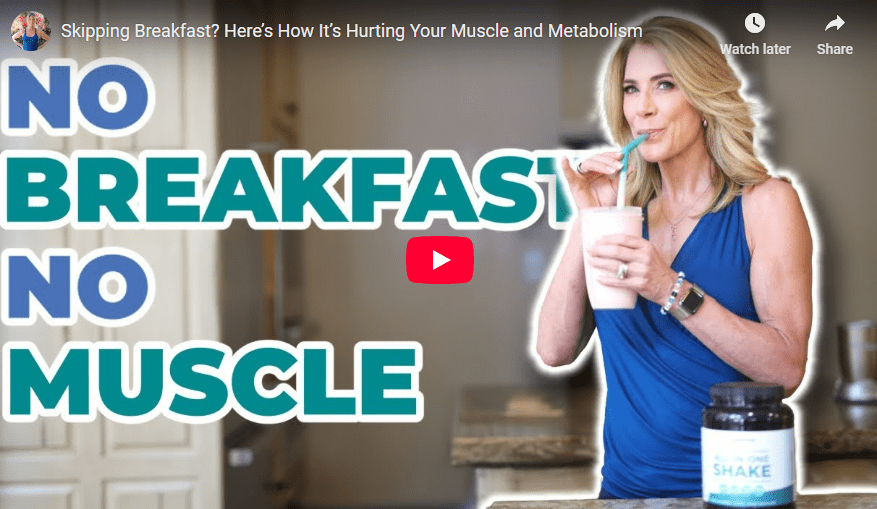You’ve probably experienced some version of this scenario. You enjoyed a healthy, satisfying dinner eating by the plate. Maybe you even enjoyed something like berries or a Co-Co Crave Fiber Bar as an after-meal sweet treat.
And that’s it, you tell yourself. The kitchen is closed for the evening.
You’re flipping through Netflix or watching Seinfeld reruns a few hours later when you realize you have a half-eaten pint of butter pecan in the freezer. Or you remember that jar of unsweetened almond butter in the fridge (I’m guilty on that one!). Pick your dietary kryptonite, and it’s sitting in the kitchen.
I’ll have just a bite, you promise.
I don’t need to remind you how this situation ends. Most likely, you go to bed shortly after you’ve had more than a few bites, promising yourself you’ll get right back on track tomorrow.
The Urge to Snack Can Happen at Any Time
Nighttime or otherwise, one pattern I’ve found is that snacking rarely happens when you’re hungry. Nope, you’re bored or stressed or maybe didn’t have a satisfying meal, and something sweet or crunchy just happens to be nearby.
But even if you make smart snacking choices, you could be creating more harm than good.
For one, snacking gives you permission to eat more than you need. Many snacks also increase cravings, so you’re habitually (and maybe even uncontrollably) reaching for seconds when you know you need to stop. Plus, most snacking is mindless eating.
And when you’re trying to lose weight, snacking can be the obstacle that leaves you cursing the scales. Why? Because every time you eat, you raise insulin levels. And when you raise insulin, you shut down fat burning. Snacking keeps insulin levels elevated and the fat-burning doors locked.
Breaking free of your snacking addiction can feel incredibly freeing. You can comfortably go from meal to meal, feeling satisfied and focused. The waft of something sweet doesn’t derail your focus.
I realize how challenging giving up the snacking habit can be. That’s why I’ve got a plan of attack that can help you break your snacking habit with these nine strategies.
Stop-Snacking Strategy 1: Close the Kitchen After Dinner
One study looked at 19,687 middle-aged Japanese women, who revealed their habitual eating behaviors. Researchers found those who ate late dinners or bedtime snacks were more likely to be overweight or obese.1
Simple solution: Have a healthy dinner eating by the plate and close the kitchen. Stop eating three hours before bed (and no, going to bed later is clever but doesn’t count!).
Stop-Snacking Strategy 2: Keep the Enemy Out of the House
You know, that one trigger food that you can’t stop eating. Even the healthy ones can be troublemakers when you overdo them. (Looking at you, almond butter.) Get your enemy out of the house… and out of the glove compartment and wherever else you might stash it.
Stop-Snacking Strategy 3: Track Your Progress
I’ve had clients who started writing down everything they ate and realized they were getting quite a bit of calories from snacking.
When you keep a food journal, you have to be absolutely honest with yourself. You can also pinpoint, say, those afternoons where you were stressed at work and succumbed to something sweet or crunchy.
Journaling works: In one groundbreaking study with nearly 1,700 participants, those who wrote down everything they ate lost twice as much weight as those who didn’t!2
Stop-Snacking Strategy 4: Bring in Intermittent Fasting
When you’re fasting, you’re not taking in any calories from food or drink. This structure can actually help you break the snacking habit. After all, if you stop eating at 8 p.m. after a balanced dinner, you’re not going to break your fast at 10 p.m. with a bite or two of something.
Ideally, I’d like you to have at least a 12-hour fast between dinner and breakfast to allow insulin to return to fasting levels so your body can use stored fat for fuel.
Find out more about how to do intermittent fasting here.
Stop-Snacking Strategy 5: Eat By the Plate
Keeping your blood sugar balanced and insulin levels low keeps hunger and cravings at bay. And eating by the plate is the best way to do that.
You’ll start with a loaded smoothie to break your overnight fast. Then, you’ll enjoy balanced meals of clean, lean protein, healthy fats, colorful non-starchy veggies, and some slow carbs every 4-6 hours. Eat this way and you’re not going to be dogged by cravings all day.
We’ve got over 60 fab recipes for loaded smoothies and more in this FREE cookbook. Claim yours here.
Stop-Snacking Strategy 6: Drink Up!
Mild dehydration often masks as hunger, especially if you’ve been power-driving through the day on caffeine, and your stress hormone cortisol is elevated.
Staying hydrated can help beat that gotta snack feeling. In one study, everyone who drank just 8 ounces of water before bed curbed their hunger completely.3 Of course, be mindful not to drink too much water, which can impede on your sleep.
Find out how much water you should be drinking here.
Stop-Snacking Strategy 7: Get Great Sleep
It’s not your imagination if resisting those double-fudge brownies feels nearly impossible after you’ve tossed and turned all evening.
Studies show that one or two nights of subpar sleep can decrease circulating levels of your satiety hormone leptin while increasing hunger hormone ghrelin. The end result: You’re hungrier the next day (and not for Brussels sprouts, either).4
There’s more: One night’s poor sleep can raise your stress hormone cortisol levels the next day.5 Elevated cortisol makes you hungrier and stressed out, which means you feel more “snack-y.”
As a busy entrepreneur, the one thing I prioritize is great sleep. I don’t perform at my best when I don’t sleep well, so getting 7–9 hours of quality sleep is non-negotiable. My Sleep Cheat Sheet gives you my top tips for solid, consistent sleep every night. Get the FREE guide here.
Stop-Snacking Strategy 8: Swap Out Your Habit
Let’s face it, snacking is usually a habit, and not a healthy one. You’re stressed or bored, and a bag of chips seems like the perfect way to assuage those feelings.
Instead of giving in to food or drink, go deeper and see what you’re feeling. Ask yourself how you can better approach that boredom or stress. Maybe you’ll take a brisk walk, do a five-minute meditation, or have a glass of green tea. Bypassing that snacking habit also gives you a little hit of dopamine that feels so good!
Stop-Snacking Strategy 9: Try This Crave-Busting Amino Acid
If you struggle with sugar cravings, resisting the warm waft of cinnamon buns at the airport or your colleague’s warm baguette at lunch can feel impossible. L-glutamine is your solution.
Dr. Robert Atkins got the idea to use L-glutamine for sugar cravings when he learned other doctors were using this amino acid to manage alcohol addiction. He modified the amount for his patients, and sure enough, it helped them beat their worst sugar cravings.
Plus, this workhorse supplement boosts your master antioxidant glutathione, supports muscle recovery, and heals the gut.
Here’s how to make Lemon-Aid:
8–12 ounces of water
2 tablespoons lemon juice
1 gram Glutamine Powder
5 grams of fiber (from either Extra Fiber or chia seeds)*
Approved sweetener (xylitol, monk fruit, erythritol, pure stevia)—sweeten to taste
One Last Thing…
I’m not a meanie. If you really can’t make it from one meal to the next without crippling cravings and fatigue, at least snack correctly. In an emergency, you’ll be armed and ready with these quick, tasty options rather than left to your own devices. Don’t overdo it, and remember that nighttime snacking can derail your success.
If you’ve got to have a snack, a handful, a couple of ounces, or a few bites should suffice with any of these.
- Plant-based yogurt with blueberries
- Celery with almond butter
- Hummus with veggies
- Kale chips
- Low-roasted or dehydrated nuts and seeds
- Nitrate-free, no-sugar-added jerky
- Raw veggies with black bean dip
- Loaded smoothie with our All-In-One protein
References:
- Okada C, Imano H, Muraki I, Yamada K, Iso H. The Association of Having a Late Dinner or Bedtime Snack and Skipping Breakfast with Overweight in Japanese Women. J Obes. 2019 Mar 3;2019:2439571. doi: 10.1155/2019/2439571. PMID: 30944735; PMCID: PMC6421799.
- Kaiser Permanente. “Keeping A Food Diary Doubles Diet Weight Loss, Study Suggests.” ScienceDaily. ScienceDaily, 8 July 2008. <www.sciencedaily.com/releases/2008/07/080708080738.htm>.
- University of Washington Study. 2002. Reported in Integrated and Alternative Medicine Clinical Highlights 4, no. 1: 16.
- Schmid SM, Hallschmid M, Jauch-Chara K, Born J, Schultes B. A single night of sleep deprivation increases ghrelin levels and feelings of hunger in normal-weight healthy men. J Sleep Res. 2008 Sep;17(3):331-4. doi: 10.1111/j.1365-2869.2008.00662.x. Epub 2008 Jun 28. PMID: 18564298.
- Leproult R, Copinschi G, Buxton O, Van Cauter E. Sleep loss results in an elevation of cortisol levels the next evening. Sleep. 1997 Oct;20(10):865-70. PMID: 9415946.
The views in this blog by JJ Virgin should never be used as a substitute for professional medical advice. Please work with a healthcare practitioner concerning any medical problem or concern. The information here is not intended to diagnose, treat, or prevent any disease or condition. Statements contained here have not been evaluated by the Food and Drug Administration.
*These statements have not been evaluated by the Food and Drug Administration. This product is not intended to diagnose, treat, cure, or prevent any disease.





